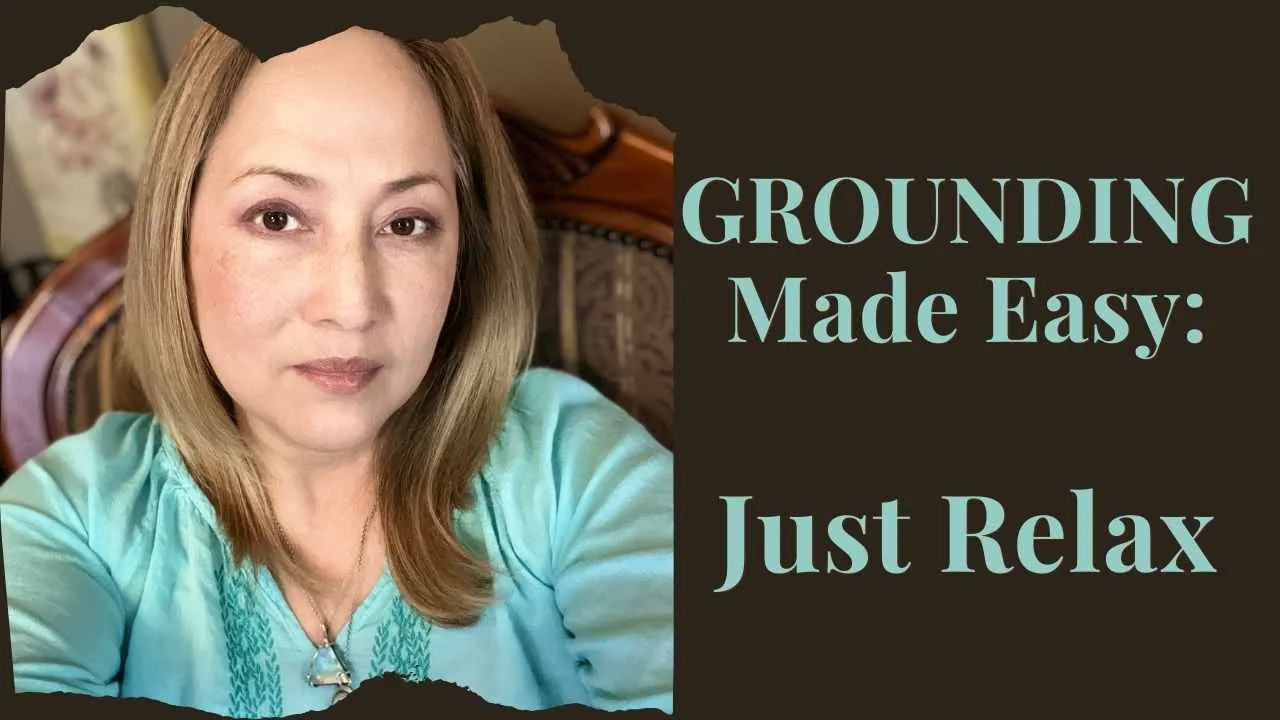Grounding as the Foundation for Boundaries
Setting and maintaining healthy boundaries is a critical skill, but if you’re feeling drained or depleted, it can feel like an uphill battle. In this post, we’ll explore the important connection between grounding and boundaries, and why grounding is essential for making boundaries easier to uphold without burning out.
Whether you’re preparing for the holiday season or navigating difficult relationships, grounding is the key to restoring your energy and maintaining your emotional health.
Why Setting Boundaries Can Be Hard Without Grounding
When you’re not grounded, your energy is scattered, making it harder to maintain clear boundaries. You might find it difficult to say “no” or feel exhausted after trying to protect your energy. Boundaries become more challenging when your energy is always moving outward—giving to others—without being replenished.
A lack of grounding leads to symptoms such as:
- Anxiety or disconnection
- Mental overwhelm (like racing thoughts)
- Emotional exhaustion from trying to maintain boundaries
- A sense of being unsupported or unrooted
Many people focus solely on boundary-setting techniques. While those skills are important, without grounding, keeping your boundaries intact requires extra effort. It may feel like you’re constantly disconnecting from others to protect yourself, and this leaves you feeling emotionally drained.
How Grounding Makes Boundaries Easier to Maintain
Grounding restores your life force energy by drawing nourishment from the earth, giving you the capacity to maintain boundaries without exhausting yourself. When your energy is replenished through grounding, setting boundaries doesn’t feel like a struggle—it feels natural and aligned.
Think of grounding as recharging your battery. When you’re fully charged, it’s easier to:
- Say “no” without guilt
- Protect your energy without disconnecting from others
- Set boundaries that feel sustainable and aligned
- Avoid emotional burnout
Grounding provides the stability you need to manage interactions without being drained, especially during times of stress—like family gatherings or triggering conversations.
Grounding First: The Key to Energy Management
When you ground first, you gain access to the energy of the earth instead of relying solely on your own reserves. This replenishes you so that setting boundaries doesn’t drain your energy. If you’re low on energy and try to maintain boundaries, you’ll lose steam quickly. Grounding helps prevent that by giving you a source of sustainable energy.
The beauty of grounding is that once you’ve mastered it, the process becomes effortless. It won’t take long to center yourself, connect with the earth, and clear away tension. With consistent practice, grounding becomes a reliable tool to support all areas of your life, including relationships and boundary work.
Boundaries and Grounding: Working Together
If boundaries are an area you’re actively working on, it’s important to develop both grounding and boundary-setting skills in tandem. You don’t have to choose one over the other. However, grounding ensures that your energy system is supported, making boundary work feel more manageable.
When to Practice Grounding and Boundaries
Grounding and boundary-setting are especially important during the holiday season, when family dynamics, social gatherings, and external stressors can test your emotional well-being. But you don’t have to wait until the holidays to begin. Developing a regular grounding practice will prepare you to navigate any emotionally charged situation with more ease.
By practicing grounding, you can:
- Replenish your energy before interacting with others
- Set boundaries without feeling disconnected or depleted
- Protect yourself from energy drains without guilt or overwhelm
How Grounding Helps Boundaries
Boundaries are essential for protecting your energy, but they become much easier to maintain when you’re grounded. Grounding replenishes your life force and helps you feel centered, supported, and aligned. When you ground first, you can protect your energy without exhausting yourself—and boundary-setting becomes less of a struggle.
If you’re working on both boundaries and grounding, develop them in tandem. Grounding will give you the energy you need to set boundaries in a way that feels sustainable and effective.
As you move through the holiday season or any other challenging time, remember: Ground first, then set boundaries. With a strong grounding practice, boundaries become a natural part of your energy management routine.

